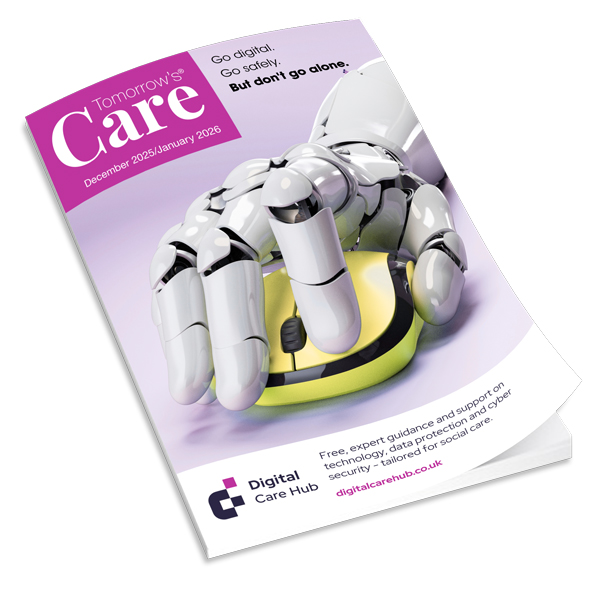Laura Wolstenholme, Head of Workforce at Persona Care and Support, talks us through their employee upskilling journey.
England’s social work sector is a bedrock in our society, working tirelessly alongside other essential sectors, such as healthcare, to provide care for the vulnerable adults and children that need it. NHS figures show that the sector currently hires 1.48 million individuals across the country, however, there is a real demand for more skilled workers within the sector. Many look to recruitment to meet skills shortages, but there are many ways businesses can meet demand from existing employees. In fact, the Government’s recent Skills Horizon Barometer showed that 74% of SMEs in the health and care sector plan to increase investment in upskilling to plug the skills gaps within their workforce.
Upskilling from within has been effective for us at Persona Care & Support Ltd, a social care organisation that prioritises helping people live their best life. This article will cover some ways we’re doing this and how other employers in the sector can look to do so too, from reviewing their recruitment processes to hosting placements for T Level students and apprentices.
Addressing the sector’s skills shortages
The UK’s social care sector has a twofold challenge, which has persisted over the last few years – the first is attracting talent; last year there were 50% more vacancies than there were in the previous year, according to figures from Skills for Care, so demand for talent is high. The second is retaining existing staff – and finding ways to do so, without a high cost to the employer.
At Persona Care & Support we’ve seen these issues reflected in our own organisation, especially in the aftermath of the Covid-19 pandemic. Prior to the pandemic, we would often hold events to talk with those interested in applying for our vacancies or entering the care sector. These were a great way for us to form relationships with job applicants and proactively raise awareness of our vacancies. However, post-pandemic, we found ourselves experiencing a significant drop in interest for the vacancies we were advertising.
We’ve had to adapt our strategy, and have since witnessed an improvement, with our more recent vacancies attracting 40-50 applicants each. A significant factor behind this shift has been an internal review of our recruitment changes, done primarily to make them more inclusive and effective. We’ve shifted to focus on inviting those with an attitude and passions which align with our business to apply, knowing there are many training opportunities available to help us upskill and shape employees to meet our needs.
Investing in employee potential
Reviewing our internal data on our workforce was key to identifying upcoming challenges for us. This showed that one of our future challenges will be linked to having an ageing workforce; 51% of our current senior management is over the age of 50. This means that although we’re not currently hiring for these employees’ positions, we will need to do so in the future and can plan for that moment now to avoid skills gaps down the line.
Rather than looking to recruitment for these positions, we’re launching our Rising Star program, with the aim of identifying and investing in talent within the organisation that have leadership potential. These employees will be taught the core skills needed to thrive as a manager, from making care plans to supervisions and managing rotas.
Additionally, as part of our recruitment progress, we offer existing employees a Level 2 apprenticeship upon completion of their induction, which gives them the option to access additional accreditation to help them grow in their role.
Nurturing future talent
As a former apprentice I know firsthand how incredibly beneficial technical education can be to helping kickstart and individual’s career in a field they love. Our organisation has been working closely with a local college to support T Level students studying Adult Nursing, and we’ve been hosting placements from there over the last year. We’ve also visited the college to give talks on careers in social care to ignite interest in the sector.
Technical education plays an important role in helping to demystify industries such as social care which people may otherwise not have considered as an option, despite being a good candidate for it, due to misconceptions that were never corrected. With the experience they’ve gained, whether through an apprenticeship, T Level or HTQ, individuals are able to gain unfiltered access to the workplace, empowering them to make an informed choice on what they want to do next with their career.
We have a vital opportunity to shape the talent we need within our sector, both for current and future needs, so it’s worth looking into the opportunities you can tap into to help your business too.
Interested in knowing more about technical education? Please find more here.





















